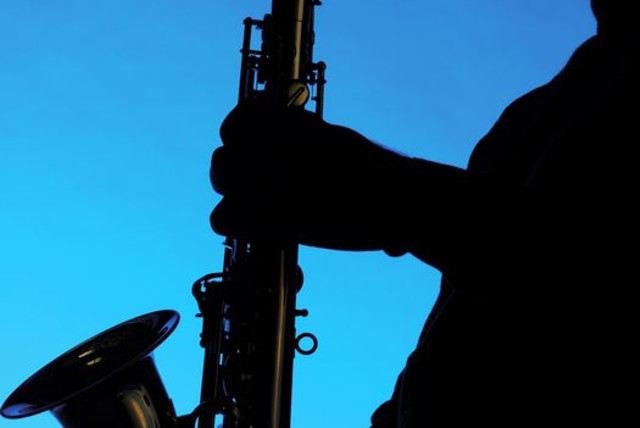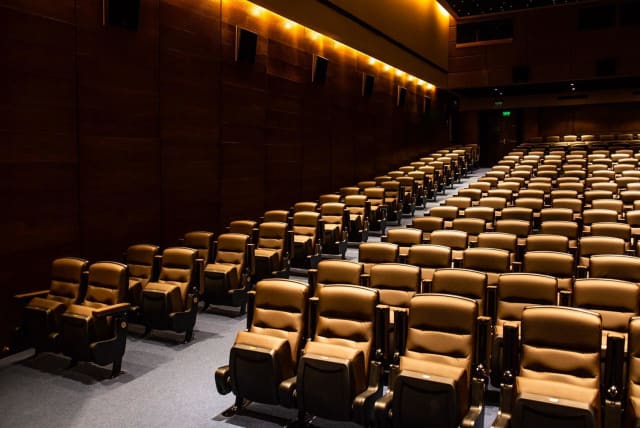Tal Avraham has two of the most precious resources for human well-being at her behest – time and space. The 35-year-old trumpeter demonstrates that clearly, naturally, and calmly in her debut album, Preda (Departure) which came out earlier this year. It will get its fourth airing at the forthcoming Queenta Woman Jazz Festival (QWJF) which takes place at the Yellow Submarine in Jerusalem June 4-6.
The festival, initiated by vocalist Chen Levy in order to allow female artists an all too rare opportunity to strut their stuff, takes place for the third time next week. Levy has served as perennial QWJF artistic director since its inception, and also appears with the festival house band, Queenta Ensemble, along with four female instrumentalists.
There are women’s jazz festivals in various locations around the world. The Women in Jazz Festival is one of the oldest, starting life at the Kennedy Center in Washington DC back in 1996. The Women Composers Festival of Hartford, Connecticut, has been around since 2001, although that does not focus specifically on jazz. And Australia has the Melbourne Women’s International Jazz Festival and the Sydney International Women’s Jazz Festival.
QWJF is a welcome additional vehicle for women to show what they have to offer, globally, on the jazz front although that does beg searching questions about why there is a need for corrective events in the first place. The plain sad fact of the matter is that, by and large, there continues to be sexual discrimination in the male-controlled jazz community around the world.
And, judging by the acts on the QWJF roster, this isn’t just a benevolent nod in the direction of female jazz artists. There are some big names in there, such as veteran pianists Anat Fort and Katia Toobool – Fort is the first Israeli jazz musician, of any gender, to have recorded with prestigious German label ECM. As the festival’s previous editions have shown, this is quality music by any standards.
Tal Avraham's jazz repertoire
Avraham should help to keep the level of rendition in the upper echelons. Her June 6 concert – the doors open each day at 6:30 p.m. with the first of the five daily gigs starting at 7:30 p.m. – features acclaimed bassist Shay Hazan who also plays on the record, Milton Michaeli on piano and keyboards, and Amir Bar Akiva on drums.
The trumpeter is no stranger to the Israeli music scene, across numerous sectors. Over the past 10-plus years Avraham has contributed to an eclectic range of acts. I first came across her around a decade ago at a rehearsal of the Bint El Funk groove band which kickstarted the Yemen Funk genre, in a less than salubrious spot in the Talpiot industrial area of Jerusalem.
Avraham seems willing to try her hand – and lungs – at practically anything going, from straight-ahead jazz to ethnic material and even avant-garde-leaning pursuits. The latter, for example, sees her play with the envelope-pushing Castle in Time ensemble at this year’s Jerusalem Jazz Festival on June 19 and 20.
One might have wondered whether the “real” Tal Avraham was ever going to stand up.
Preda provides us with pointers to the answer to that. Not that she doesn’t mean what she plays when she does her sideman thing with all the other projects, but it is when a musician puts out their own self-scored work that you get a better idea of their line of thought and what they really want to say.
In words of one syllable, despite her accrued lengthy track record to date, Avraham says she feels it is time to move on and push her boat out. “Maybe Preda is my attempt to leave the past behind, to strike out into new territory,” she suggests.
That does not mean throwing out the baby with the bathwater. Avraham knows where she comes from and draws inspiration from some of her trumpet-blowing elders the likes of late Canadian-born British trumpeter Kenny Wheeler, Lebanese instrumentalist Ibrahim Maalouf, and in particular, 45-year-old Norwegian counterpart Mathias Eick.
The Eick connection comes across in the seemingly endless sonic ripples you hear on Preda which, fittingly, goes with a video clip shot in the desert. That’s not quite the same as the wide open mountainous and fjord expanses of Scandinavia but the unimpeded textures of Avraham’s sound impart a similar sensibility.
“I like duration and space in music. When I play I feel, physically, that I don’t need to hear too many notes, so I have a space in which I can express myself,” she declares. “My sound isn’t an overly-feral trumpet sound,” she adds, somewhat superfluously.
This isn’t a cerebrally-dictated approach to her craft. She says she just goes with the natural corporeal flow.
“I think a lot about my sound. My body directs me towards playing in a particular way. Maybe it’s some sort of aesthetic that feels natural. I don’t know. That’s just the way I play,” she laughs.
Avraham isn’t shy about utilizing the benefits of advanced technology either, and there are electronic effects sewed into the fabric of the eight-cut record too. But they are deftly incorporated, serving to complement the acoustic instrumental baseline rather than distort it to the point that you don’t recognize the source of the sound.
It is also clear that Avraham is in no rush to get herself heard, or is trying too hard to impress with her technical skills. There is nothing in the way of rapid-fire arpeggios. Avraham, indeed, gives herself time to convey her thoughts and feelings but she also allows her listeners to join in the alluring ride. The title track, in particular, is a seductive effort that eventually, imperceptibly, segues into a captivating groove feel.
In this technological day and age, there are affordable means out there for budding artists to cobble together an album at any stage of their career. As world-renowned jazz bassist Avishai Cohen once remarked to me – quite a few years back now – young artists might be tempted into putting their first fruits out there before they are suitably formed.
“The first record is always their debut,” he noted sagaciously.
At the age of 35, Avraham has paid significant dues and has come up with a debut release that indicates she has achieved the requisite level of maturity to offer us something worth a listen or two, and making the effort to go and see her and her band at the Yellow Submarine next week. This won’t be a one-trick rhythmical pony either with, for example, “Dharana” – “collection or concentration of the mind,” in Sanskrit – taking us, momentarily, into more upbeat climes before (on the album) harpist Ada Ragimov smooths out any wrinkles that may have formed. “Optimic Ballad” also pushes the energy ante up a notch or two, but the sense of freedom and release is there nonetheless.
These days we could all do with taking a deep breath and partaking of some soulful healing space. Perhaps Avraham et al can help with that.
For tickets and more information: (02) 679-4040 and yellowsubmarine.org.il/en/queenta-woman-jazz-festival/








































































































